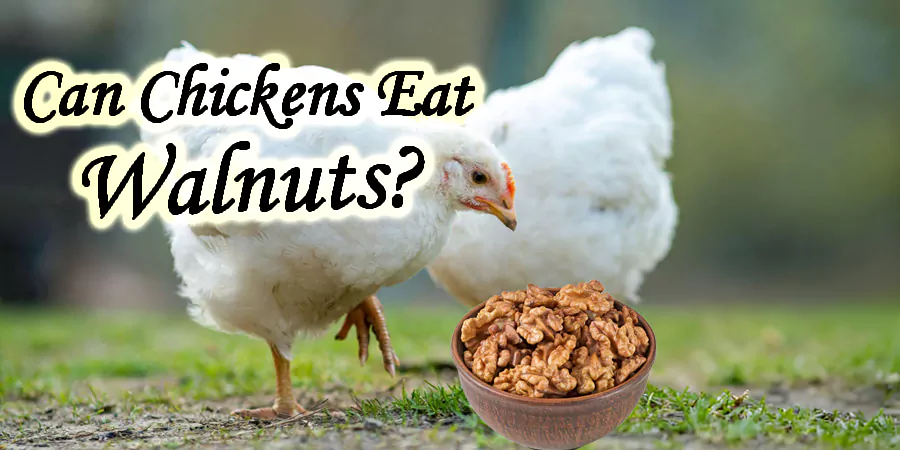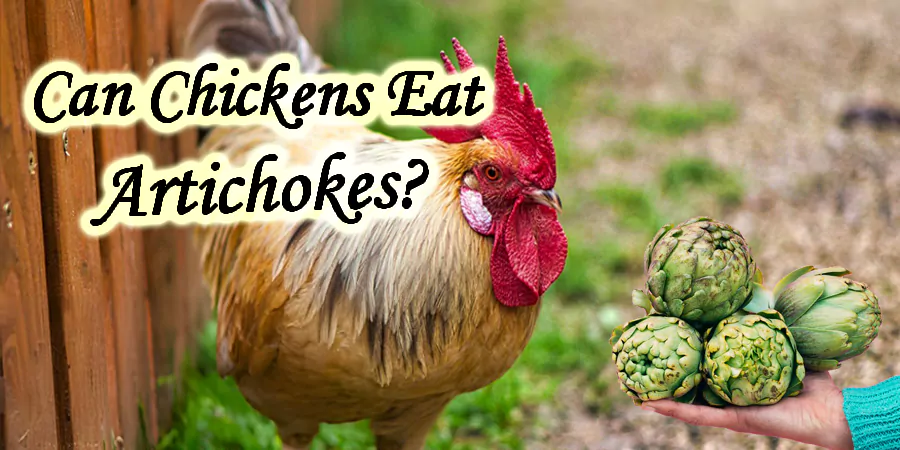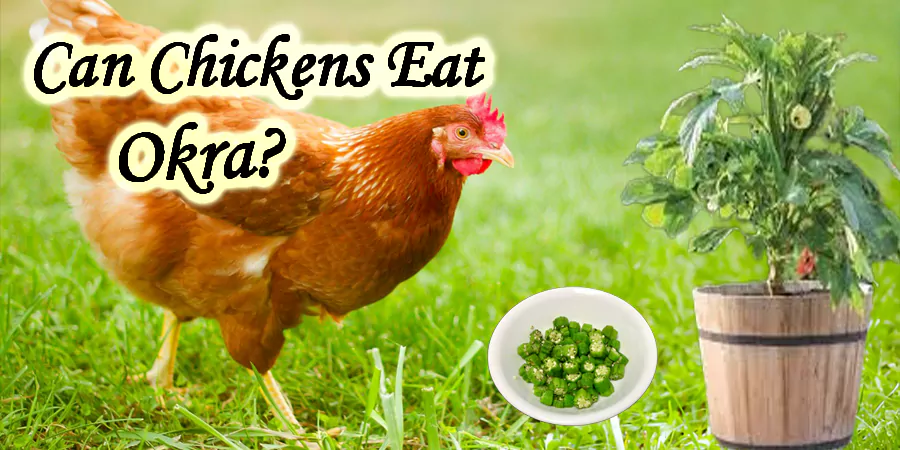Can Chickens Eat Walnuts? A Fact Based Debate
Published: 9 Jun 2024
Every chicken enthusiast wants to serve nutritious foods that are safe for their flock. Walnuts are nutritious but are they safe for chicken? If you are pondering on this nutty dilemma, we are going to resolve it once and for all. After a comprehensive analysis of potential benefits and hazards, you will be able to decide whether these nuts are a boon or a ban for chickens. Let’s start our journey to discover: how to make our flock delighted with these walnuts.

Can Chickens Eat Walnuts? A Fact Based Debate
Are Walnuts Toxic For Chickens?
No, Walnuts are not toxic if served with caution. They can create problems for chickens when decontaminated by a toxic substance called aflatoxin. You should avoid serving moldy Walnuts to your flock to prevent this risk. The addition of seasonings and salt can be fatal to chicken’s health. It is favorable to serve Walnuts after chopping into small pieces to prevent blockage in chickens.
Nutritional Content of Walnuts
Although Walnuts are harder to consume for chickens but packed with diverse nutrients. Chicken enthusiasts love to feed nutrient-rich foods to their flock. It is full of proteins and calories which provides energy to chickens. Walnuts are filled with monounsaturated and polyunsaturated fats which are helpful in weight gain in your flock.
The dietary fiber in Walnuts helps in the digestion process of chickens. Vitamin E and Vitamin B6 are present in Walnuts which provide metabolic support to our poultry animals. It has carbohydrate content which is an energy booster for chickens. It is a good source of minerals like Magnesium, copper, iron, zinc, and phosphorus. Antioxidant content is helpful for stress management in chickens.Walnuts provide omega-3 fatty acids which promote heart health and combat inflammatory diseases.
Nutrients and their Value per 100 Grams of Walnuts
| NUTRIENT | VALUE | NUTRIENT | VALUE |
|---|---|---|---|
| Calories | 654 Kcal | Fat | 65.2 grams |
| Protein | 15.2 grams | Carbohydrates | 13.7 grams |
| Fiber | 6.7 grams | Sugars | 2.6 grams |
| Calcium | 98 mg | Iron | 2.9 mg |
| Magnesium | 158 mg | Phosphorus | 346 mg |
| Potassium | 441 mg | Sodium | 2 mg |
| Zinc | 3.1 mg | Vitamin C | 1.3 mg |
| Thiamine | 0.3 mg | Riboflavin | 0.1 mg |
| Niacin | 1.1 mg | Vitamin B6 | 0.5 mg |
| Folate | 98 mcg | Vitamin E | 5.6 mg |
How to Feed Walnuts to Chickens
It is very crucial to serve walnuts to chickens in an entertaining way. You have to follow some simple steps to ensure a safe and healthy serving of walnuts to chickens.
- Select Fresh Walnuts: The first step is to choose fresh and mold-free walnuts. Moldy walnuts invite aflatoxins which are harmful to chickens.
- Serve Unseasoned Walnuts: After selecting fresh walnuts you should never add any artificial flavors or spices. These can cause digestive problems for chickens.
- Chop the Walnuts: Walnuts are hard and crunchy food for chickens. To prevent choking issues, you should crush or chop the walnuts into small pieces.
- Mix with other Feed: To increase its palatability, it is better to mix chopped walnuts with other foods. It will be a good tactic to entice clucking birds.
- Introduce Walnuts Gradually: It is advised here to introduce walnuts in small amounts and observe the response for your flock.
- Ensure Cleaned Feeding Area: To avoid decontamination of walnuts it is essential to keep the feeding area cleaned. It will prevent digestive issues.
- Moderation: It is a fact that walnuts can be served as an occasional diet to chickens. So, keep its portion at a minimum value according to the size & age of the flock.
Which Parts of Walnuts are Edible for Chickens?
Can Chickens Eat Walnut Leaves?
Walnut leaves are not recommended for chickens. Black walnut trees contain the toxic compound “juglone”. It can be fatal for chickens. Additionally, leaves are difficult to digest for chickens. There are chances of dirt and pesticides on leaves which can cause digestive upset. So, considering these potential hazards associated with walnut leaves, we advise you to not serve them to your beloved flock.
Can Chickens Eat Walnut Shells?
Walnut shells are hazardous for chickens and not recommended. Walnut shells are hard and difficult to consume for chickens. They also have sharp edges which can injure the digestion tract of chickens. If these shells are served in large pieces then there are high risks of choking. Above all, walnut shells are not a nutrient-rich food for chickens. It can cause nutrient deficiency in chickens.
Can Chickens Eat Walnut Hulls?
We are not recommending you serve walnut hulls to chickens. Like walnut shells, it also contains toxic elements like juglone. It can be harmful to chickens. Hulls can be a source of mold and invite mycotoxins. These compounds can be disastrous for the healthy growth of chickens. As hulls are tough and fibrous parts of walnuts, it is very difficult to consume them for chickens. Keeping in view these life-threatening hazards, we are not in favor of walnut hulls.
In Which Form Can Chickens Eat Walnuts?
Can Chickens Eat Raw Walnuts?
Yes, chickens can have raw walnuts in moderation. Raw walnuts have nutrients like vitamins, proteins, and dietary fiber. There are some safety steps that you must consider. Select mold-free walnuts to prevent the live disease caused by aflatoxins. Serve walnuts in small biteable pieces according to the size of your chickens to prevent blockage. Introduce walnuts in the lowest volume and gradually increase as per the demand of your flock. Moderation will play a pivotal role in making walnuts safe for chickens.
Can Chickens Eat Crushed Walnuts?
Yes, chickens can have crushed walnuts in limited value. Crushed walnuts have a decent nutritional profile for chickens. The precautionary steps for serving crushed walnuts to our flock are aligned with raw walnuts. Select fresh and decontaminate them to avoid digestive upset. Never use artificial flavors or seasonings with crushed walnuts. Keep the portion of walnuts under 10% of the total diet of your flock. It will prevent diet imbalance.
Can Chickens Eat Whole Walnuts?
It is not recommended for chickens. Whole walnuts are a potential risk for chickens to face choking issues. The safety of our flock is of prime importance for every chicken enthusiast. So, never opt for unhealthy or hazardous methods to serve food to clucking birds. Hard shells of walnuts are hard to digest for chickens and cause digestive problems. So, serve chopped, unseasoned, and fresh walnuts to your chickens.
Can Chickens Eat Rancid Walnuts?
We never recommend any sort of rancid food for chickens. The same goes for walnuts. Rancid walnuts have an awkward odor which is irritating for chickens. Rancid walnuts can be disastrous for the digestion of chickens. We have observed the outcome of rancid foods in the form of diarrhea and gastrointestinal issues. Additionally, rancid walnuts have little nutritional value and can lead to nutrient deficiency. The oxidation process can introduce some toxic compounds which are fatal for chickens. So, stay away from rancid walnuts.
Can Chickens Have Walnut Oil?
Walnut oil is not recommended for chickens for several reasons. It is rich in fatty acid which can cause obesity in chickens. Walnut oil is not a well-balanced diet and can lead to a nutrient imbalance in our clucking friends. Excessive amounts of walnut oil can result in gastrointestinal problems. Walnut oil can be harmful if rancid due to improper storage or handling. So, we recommend you opt for some better alternatives to walnut oil.
Which Types of Walnuts Can chickens Eat?
Can Chickens Eat Black Walnuts?
Black walnuts are technically allowed for chickens but with some consideration. It contains a natural compound called juglone which can lead to toxicity. It can create digestive issues because of its hard shells. If served as a whole then blockage in the digestive tract is inevitable. It can be rancid and can ruin the chicken’s growth. You should exercise the moderation formula in its true sense. So, always consider these safety measures.
Can Chickens Eat Green Walnuts?
Green walnuts are not recommended for chickens for some adverse properties. These are immature and unripe walnuts which contain high moisture. It can cause digestive problems in chickens. It is observed that clucking birds don’t like their taste because of bitterness. Green walnuts also have toxic compounds which can be hazardous to chicken’s health. Their nutritional value is less than fully ripe walnuts. So, avoid offering green walnuts to your flock.
Can Chickens Eat Too Many Walnuts?
Never, it will be harmful for chickens to have excessive walnuts. We have repeated the fact that walnuts can only be served in moderation with safety measures. The high-fat content will lead to obesity issues. Digestive upset in chickens will be on your way soon. Rancidity can cause severe health issues in chickens. Nutrient imbalance/deficiency is the potential outcome of excessive walnuts in chicken’s diet. So, limit its portion to under 5% of the total diet.
Benefits of Walnuts for Chickens
We have discussed the nutritional profile of walnuts and suggested their occasional use for chickens. The benefits of serving walnuts may depend on the preparation, serving technique, and percentage of walnuts portion. Here are the most common benefits of walnuts for chickens.
|
Potential Risks and Considerations
As we have discussed, walnuts have some negative effects on chickens if served carelessly. To minimize the hazards the most helpful tactic is moderation. Here is a list of potential hazards you must consider.
|
Alternatives to Walnuts for Chickens
If you are worried about the risks involved in serving walnuts then we are providing you with some better alternatives for your flock.
Seeds: There are a wide range of seeds available in the market. These are rich in proteins, fats, and other nutrients. Pumpkin seeds, chia seeds, sunflower seeds, and flex seeds are famous types of seeds for chickens.
Grains: Grains are nutrient-rich foods for chickens. They contain a high volume of carbohydrates which provide instant energy to chickens. The famous options for chickens are corn, oats, wheat, and barley.
Fruits: Fruits are a tasty and nutritious diet for chickens. They are packed with fiber and other nutrients. Fruits can be a good source to diversify the diet plan of chickens. Seedless apples, bananas, raspberries, and mulberries are best for chickens.
Vegetables: Vegetables are a natural source of nutrients which are recommended by poultry experts for chickens. They are packed with nutrients like vitamins, minerals, fiber, and antioxidants. Carrots, edamame, and fennel are good options.
Leafy Greens: Chickens love to have green leaves in their diet. These leafy greens are served in moderation to chickens as their secondary diet. Swiss chard, Kale, spinach, and Lettuce are commonly served to chickens.
Peas and Beans: Peas and beans are used to diversify the chicken’s diet. They have some healthy nutrients for clucking birds. Sugar snap peas are good for chickens. A wide range of beans is there but lima beans and black beans are recommended.
Conclusion
We are convinced that walnuts are a nutritious addition to chicken’s diet. The most important factor that determines the safety of chickens is moderation. Walnuts are served to chickens as an occasional food. Limit its portion between 2%-10% of the total diet. Never serve green walnuts due to their bitter taste. Take precautionary measures during the preparation process. Select fresh and mold-free walnuts.

- Be Respectful
- Stay Relevant
- Stay Positive
- True Feedback
- Encourage Discussion
- Avoid Spamming
- No Fake News
- Don't Copy-Paste
- No Personal Attacks

- Be Respectful
- Stay Relevant
- Stay Positive
- True Feedback
- Encourage Discussion
- Avoid Spamming
- No Fake News
- Don't Copy-Paste
- No Personal Attacks


